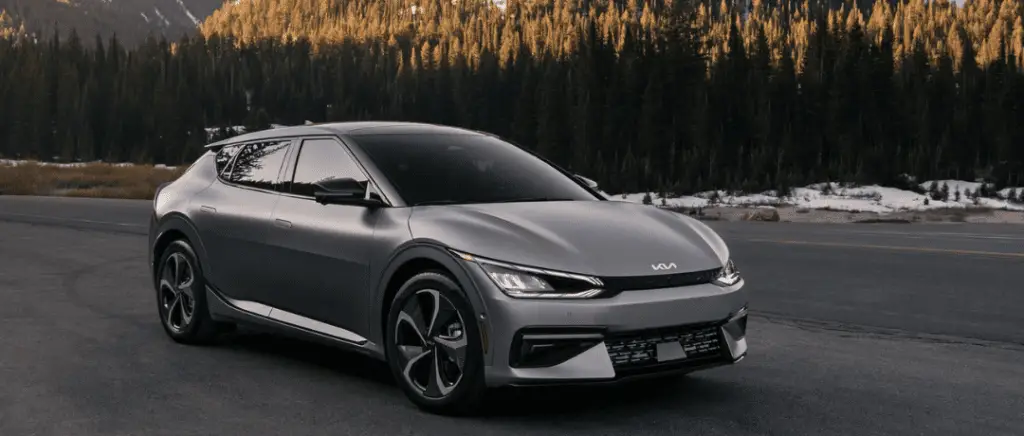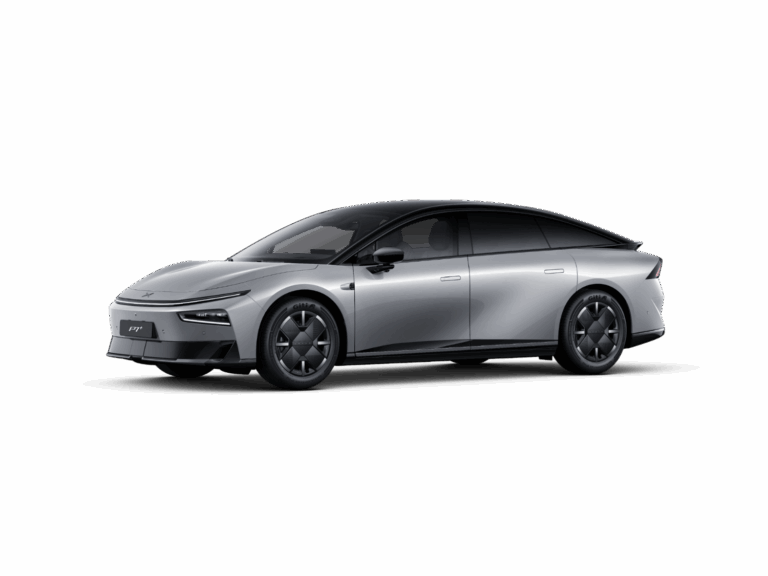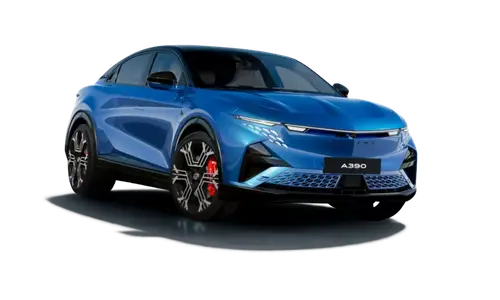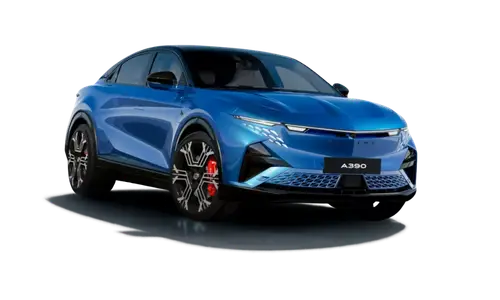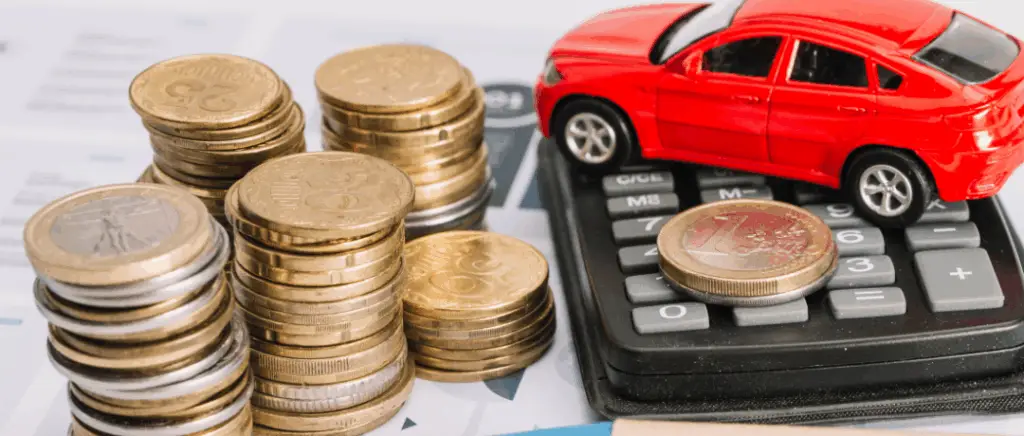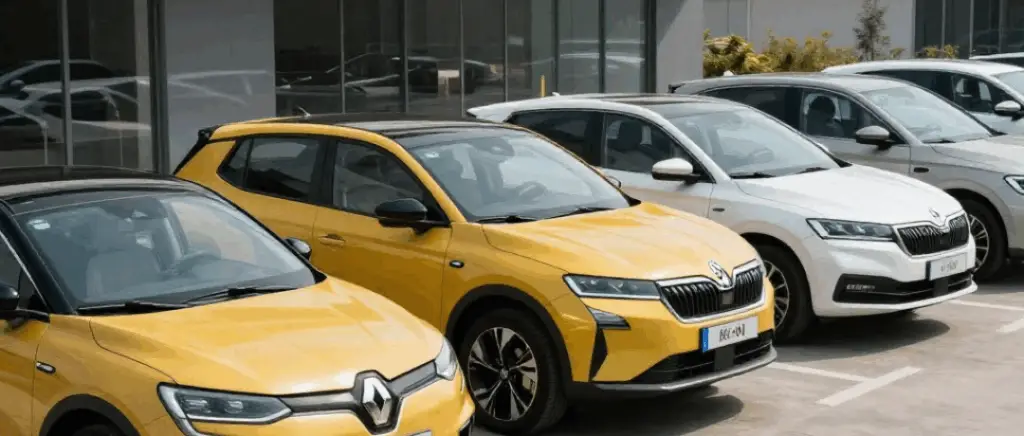Monday to Friday 9am - 12.30pm - 2pm - 7pm
The end of combustion-powered cars
All things must come to an end, and this will soon be the case for combustion-powered cars. That's right, the European Commission's plan to reduce CO2 emissions from new cars in Europe to zero. Approved in June 2022 by MEPs and EU Member States, the project involves end the sale of new combustion-powered cars in 2035. Then in 2050, the aim is to have a carbon neutralityIn other words, no more vehicles using combustible fuels on the roads.
The aim is to have only clean vehicles that emit no CO2 when they are on the road. This is a major step forward in the fight against global warming, given that cars account for 20 % of global CO2 emissions in 2021, according to a study by the International Energy Agency.
The various forms of government assistance
The French government has made a number of grants available to help you buy a electric car with reduced purchase or leasing costs for people who can't afford to buy an electric vehicle for less than €47,000.
The ecological bonus
The ecological bonus is a government bonus to encourage consumers to switch to cleaner vehicles. This environmental bonus 2023recently announced by President Emmanuel Macron, will vary according to the price of the vehicle and its category. It will also be more advantageous for the most modest families to be able to buy a new electric car.
| Catégories de véhicules | À partir du 1er janvier 2023 |
|---|---|
|
Electric vehicles (CO2 ⩽ 20 g/km) costing less than €47,000
|
27 % of the price capped at €5,000 (€7,000 for low-income families)
|
|
Electric vehicles (CO2 ⩽ 20 g/km) costing less than €47,000 (legal entity)
|
27 % of the price up to €3,000
|
|
Electric vehicles (CO2 ⩽ 20 g/km) from €47,000 to €60,000
|
0 €
|
|
Plug-in hybrid vehicle (CO2 levels between 21 and 50 g/km) of up to €50,000 and range > 50 km
|
0 €
|
Read also : Ecological bonus: what changes in 2023?
The conversion premium
Like the ecological bonus, the conversion premium will enable you to reduce the price of an electric vehicle. To benefit from this aid, you will have to scrap your diesel or petrol vehicle when you take delivery of your new car. This will destroy the polluting vehicle and replace it with a clean vehicle. In 2023, this conversion premium will be between €1,500 and €4,000. The amount will depend on your reference tax income, the vehicle you wish to destroy and the vehicle you wish to acquire. You can test your eligibility on the service-public.
Regional aid
In addition to national support, you will also be able to benefit from support depending on your region. In fact, some a number of regions are helping you to make the ecological transition by providing additional support. For example, for the Greater Paris subsidy, you will receive assistance if you scrap an old vehicle that you have owned for at least one year and that must be replaced by a "clean" vehicle. Here's the amount of aid according to your reference tax income. Please note that this regional aid is can be combined with the conversion premium set up by the government.
| Revenu fiscal de référence (voitures électriques et hydrogène neuves) | Montant de l'aide |
|---|---|
|
the vehicle is purchased or leased by a natural person with an RTS/Part less than or equal to €14,089
|
up to a maximum of €7,000 including tax
|
|
the vehicle is purchased or leased by a natural person with an income per share of more than €14,089
|
up to a maximum of €5,000 inc.
|
|
the vehicle is acquired or leased by a legal entity
|
up to a maximum of €3,000 inc.
|
| Revenu fiscal de référence (camionettes électriques ou hydrogène neuves) | Montant de l'aide |
|---|---|
|
the vehicle is purchased or leased by a natural person with an RTS/Part less than or equal to €14,089
|
up to a maximum of €8,000 inc.
|
|
the vehicle is purchased or leased by a natural person with an income per share of more than €14,089
|
up to a maximum of €6,000 including tax
|
|
the vehicle is acquired or leased by a legal entity
|
up to a maximum of €4,000 including tax
|
Many other regions offer additional support!
Read also : what support is there for your electric car in 2023?
Your driving habits
Nowadays, some people choose their car by looking at its appearance and also how quickly it goes from 0 to 100 km/h. However, a car should be chosen according to your needs and your driving habits. If your daily commute is mainly in town, a diesel car will only cost you more fuel, and therefore more money. In this case, the electric car is the best choice and ensures optimum driving comfort, but also fuel savings. In fact, the price of a litre of petrol is around €1.90, while the price of a kW recharge is around €0.15. So you'll notice a difference of several tens of euros between fully recharging an electric car and filling up with petrol.
If you make more rural journeys, a Electric SUV such as the Kia Niro EV is sure to please. Being very spacious and with a larger autonomy that city carsIf you don't want to recharge your electric car too often, it makes more sense to opt for this category of car. However, if you're looking for a city car, the Dacia Spring could be an excellent low-cost choice
Read also : Top 8 most fuel-efficient electric cars
A contract coming to an end
If there's ever a time when you wonder about your future car, it's when you arrive at the the end of our lease (whether in LLD, LOA or LMD) or when it's finally time to say goodbye to our car that keeps breaking down.
If you are currently in this situation or will be in the next few months, going electric now is certainly the right solution. With the end of combustion engine car sales in 2035, electric cars are just waiting for you. What's more, you'll have plenty of options for getting your own electric vehicle.
You can decide to buy your car so that it's all yours. Or you can opt for a lease:
- long-term leasing (LLD), a contract for a period of between 24 and 60 months
- a medium-term lease (MTL), i.e. a contract ranging from one month to 24 months
- a lease with an option to buy (LOA): this is a contract similar to a long-term lease, but you will have the option of either buying the vehicle or returning it to the lessor if you so wish
If you want to know which contract is best for you, you can contact our experts, who will answer all your questions.
Read also : How do you negotiate car insurance for an electric car?
You dream of technology
Among electric cars, some are real technological gems. When you love all things technological, driving an electric car can be very satisfying.
Among the many electric cars on the market, some have been designed to be real electric cars and not an adaptation of their internal combustion version. For example, the Electric Tesla are computers on wheels, offering a unique driving experience. Volvo is also developing electric vehicles that will surprise us like the future. Volvo EX90 SUV.
Save money
Yes, move to a electric car will save you money. Although the list price is higher than for internal combustion cars and often frightening, in the long term you'll start to realise the savings you've made.
Let's take the example of a Peugeot e-208 100 % electric LIKE finish and a Peugeot 208 internal combustion LIKE finish. The list price for the electric version is €34,800 with the environmental bonus are priced at €27,800, then you'll be able to take advantage of additional conversion bonuses and lower your list price once again. For the internal combustion version, the list price is €19,200, and you won't be able to claim any eco-bonus.
Moving on to fuel costs. For a petrol car, the price of fuel is around €1.90 per litre. To cover 100 km, you'll need 6 litres, or €11.40. For an electric car, recharging costs €0.15/kWh at peak times. To cover 100 km, you'll need 15 kWh, i.e. a recharge costing €2.25. So a difference of €9.15 between the two cars to cover 100 km !
There are also a price difference in terms of maintenance. For an electric car, annual maintenance costs are around €120, compared with around €350 for a combustion-powered car.
All these price differences can be calculated as part of the total acquisition cost (often referred to as the "acquisition cost"). TCO) which can be calculated by our experts.
The right time for professional electric cars
As a professional, you may be wondering when to renew your vehicle fleet with electric cars. If you've read the various points above, you'll be able to follow them to a greater or lesser extent for your own vehicles. electric company cars.
Taking account of the LOM law
La Mobility Orientation Act (LOM) introduced in December 2019 aims to encourage the use of electric vehicles in companies. As a result, from 1 January 2024, 20 % in the vehicle fleet of a private company or a company with more than 50 employees and 100 cars in its vehicle fleet. This percentage will also increase in 2027 with 40 %, and in 2030 with 70 % of your fleet electrified. The aim is to achieve a fleet with 100 % electric cars.
Exemption from company car tax
One advantage available to companies is exemption from the company vehicle tax (TVS). A company with company cars has to pay this tax every year, but if it has a fleet of electric vehicles this tax will be waived, saving you money.
Better amortisation for electric cars
At present, if you own a combustion-powered car, it costs €20,300 to depreciate it. But do you know how much an electric car costs to depreciate? You can write off up to €30,000 on your vehicle, but you can also amortise its battery separately from the car by requesting two separate invoices. In addition, the battery's depreciation is now uncapped.
In conclusion
In conclusion, the decision to switch from the internal combustion engine to the electric car depends above all on your situation and your means. One of the best times would be at the end of your leasing contract, or if it's high time for you to change cars. Of course, the most important thing is to do what you want, but above all to do what you need.
